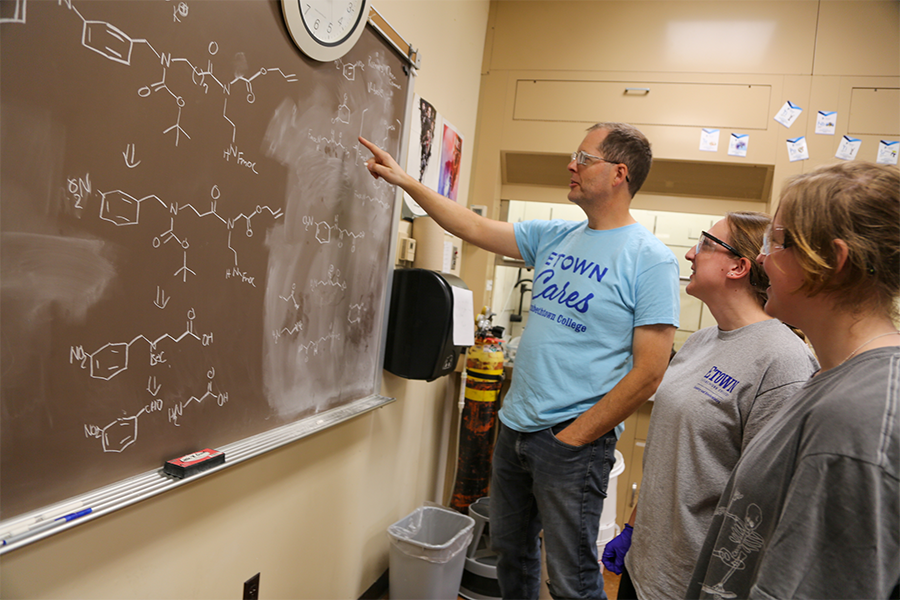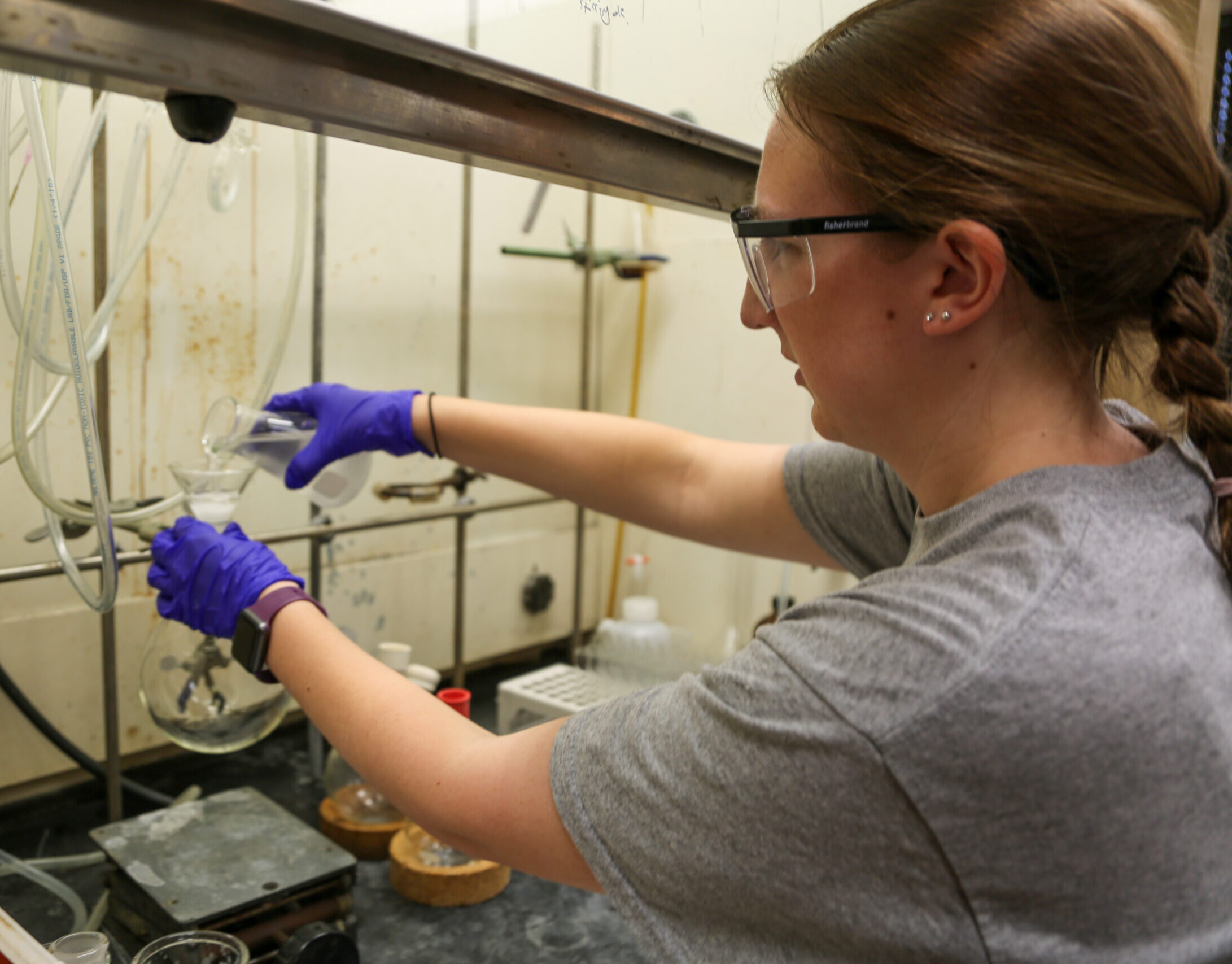Elizabethtown College Biochemistry and Molecular Biology majors Hallie Bleam ’24 and Jennah Hoke ’25 are working on campus this summer with faculty mentor and A.C. Baugher Professor of Chemistry, Dr. James MacKay, studying ribonucleic acid (RNA) and gaining a detailed comprehension regarding its primary functions. They are creating molecules that are meant to recognize specific sequences of RNA, allowing scientists to better understand strands of the key biomolecule that is relevant to the understanding of genetics and disease.
Their study is a continuation of research that dates back to the fall of 2015. The project has been researched as a part of the Summer Creative Arts and Research Program (SCARP) for the previous five years.
Title of Research
Synthesis of Novel Peptide Nucleic Acid Nucleobases for Sequence Selective Recognition of RNA
Student Researcher
Hallie Bleam ’24 (Biochemistry and Molecular Biology major)
Jennah Hoke ’25 (Biochemistry and Molecular Biology major)
Faculty Mentor
Dr. James MacKay, A. C. Baugher Professor of Chemistry
Bleam: We synthesize peptide nucleic acid (PNA) for the selective recognition of double helical RNA. PNAs function by forming a triple helical structure with double-stranded RNA. PNA has the potential to be used as a recognition and treatment tool in the future. As of now our focus in the MacKay group is the synthesis of PNA monomers that selectively bind to the base pairs of RNA.
Hoke: This summer I’ll be working on creating peptide chains and monomers to add to the chains, referred to as “backbone.” It is like the phosphate backbone in RNA, except it is a peptide backbone, hence the name PNA. To detect noncoding RNA, strands of PNA can hydrogen bond to the RNA. I am working on methods to make the synthesis of PNA faster and more efficient.
Why did you choose this topic?
Bleam: I became passionate about organic chemistry in lectures and labs in my first two years at Etown. Taking my mentor’s organic chemistry class fueled my passion for synthetic chemistry.
Hoke: I chose this topic because I enjoy synthetic organic chemistry and I wanted to gain experience working in a lab. Being independent in the lab is one of my goals this summer.
What is the most interesting aspect of this research?
Bleam: The problem-solving aspect. Chemistry doesn’t always work as planned, the exciting part is showing the ability to adjust. Another interesting aspect of this project is showing quick thinking and creative ideas during our research.
Hoke: The most interesting aspect of this research is the number of trials I run reactions for. Sometimes a reaction will work perfectly, and I can move on, but other times it does not work, and I need to start over.
How has your faculty mentor helped you?
Bleam: I learn so much working with my mentor. He is passionate about teaching and the content he’s teaching, which makes working with him a pleasure.
Hoke: Dr. MacKay has shown me new techniques to use in the lab, which go more in-depth than the general chemistry labs I have taken during the academic year. He has also taught me how to use instruments vital to making sure reactions can run without being contaminated.
Hear from the faculty mentor – Dr. James MacKay
“I’m passionate about both teaching and research and through summer research with students I can do both simultaneously,” MacKay said. “It’s gratifying to help Hallie and Jennah grow through this opportunity. We have been fortunate to have had tremendous outcomes from this project that have risen the profile of my work that is beyond my expectations and has helped raise the profile of the Etown Chemistry Department as well.”


